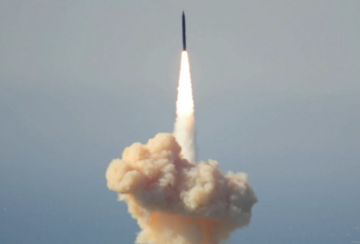
Putin may not like being called a killer—who would? However, when he sees engagement with Biden can advance his goals, he will engage.

The German government and many Germans breathed a sigh of relief when Joe Biden defeated Donald Trump in November. Mr. Trump damaged U.S. relations with its trans-Atlantic allies, and he often targeted Germany and Chancellor Angela Merkel for particular ire. Berlin has welcomed President Biden’s readiness to rebuild U.S.-German and U.S.-European ties.

How to solve the Nord Stream 2 dilemma
How to solve the Nord Stream 2 dilemma
If Gazprom could be persuaded to increase gas transit revenues for Ukraine, that would give the Biden administration a reason not to impose sanctions to block Nord Stream 2’s completion and ammunition to fend off criticism from those who want the pipeline to remain unfinished, writes Steven Pifer.

Ukraine finally has a chance to create a strong counterintelligence service and shed the Soviet standards of the old KGB. Are Ukrainian MPs ready to take responsibility and vote for such a security service?
Trying to Box in Biden on Arms Control
Former Trump officials complain that the new president doesn’t want what they failed to achieve.

The Biden Presidency and Ukraine
The Biden Presidency and Ukraine
In a December 2020 New York Times interview, Ukrainian President Volodymyr Zelensky welcomed Joe Biden’s election as U.S. president. Zelensky observed that Biden “knows Ukraine better than the previous president” and “will really help strengthen relations, help settle the war in Donbas, and end the occupation of our territory.”

On the World Class Podcast, former U.S. Ambassador to Ukraine Steven Pifer says we can expect a consistency between the president’s behavior and policy toward Russia.
Saving the Open Skies Treaty
Last November, the Trump administration unwisely withdrew the United States from the Open Skies Treaty. Earlier this year, the Russian government said it will take steps to follow suit.

The Biden administration should consider whether the benefits to United States and allied security of limiting all nuclear weapons, including non-strategic nuclear arms, would justify accepting some constraints on missile defense.
Arms control offers a tool to enhance U.S. security.

Where Next On Nuclear Arms Control?
Where Next On Nuclear Arms Control?
For nearly five decades, nuclear arms control has been an exclusive enterprise between Washington and Moscow. The resulting agreements have provided significant constraints on the U.S.-Soviet (later, U.S.-Russian) nuclear relationship while mandating substantial reductions in their arsenals.

Defense spending will come under pressure in an era of trillion-dollar COVID-19 deficits. As a result, the Defense Department will need to make trade-offs that it previously could avoid.

Managing US Sanctions Toward Russia
Managing US Sanctions Toward Russia
Sanctions will remain part of the US toolkit for dealing with Russia under the incoming Biden administration.
Despite a flurry of diplomatic activity over the late summer and early fall, the United States and Russia have yet to seal a deal on extending the New START treaty limiting their strategic nuclear arsenals.

Reviving Nuclear Arms Control Under Biden
Reviving Nuclear Arms Control Under Biden
The Biden presidency that begins in January will adopt some very different directions from its predecessor in foreign policy. One such area is arms control, particularly nuclear arms control with Russia—the one country capable of physically destroying America.
The Trump administration’s antipathy toward arms control will strike again on November 22, when the United States withdraws from the Open Skies Treaty. That is a mistake.

Donald Trump has proven to be volatile, erratic, vengeful and prone to angry outbursts. Last week, as the vote count pushed his reelection bid out of sight, he reportedly fell into a dark mood.
Trump’s Loss Not Necessarily Russia’s
If Putin and the Kremlin exercise some moderation, they can expect from the next American president a readiness for serious dialogue.

Hope for Nuclear Arms Control?
Hope for Nuclear Arms Control?
While concern had grown over the past several weeks about a breakdown in U.S.-Russian arms control, it appears the 2010 New Strategic Arms Reduction Treaty and nuclear arms control more broadly may have a new lease on life, albeit with lots of questions.

A Consequential Election for Ukraine
A Consequential Election for Ukraine
For Americans, the November 3 presidential election will be the most significant vote in many decades. The election also will have consequences for Ukraine: Whether Donald Trump or Joe Biden sits in the White House at the end of the day on January 20, 2021 will matter greatly for U.S. policy toward Ukraine and Europe.

The Trump administration’s stances on nuclear negotiations don’t even make sense as a starting point.
Nuclear Weapons: It’s Time for Sole Purpose
The “sole purpose” of U.S. nuclear weapons should be to deter and—if necessary, retaliate against—a nuclear attack. This would mark a significant change in U.S. nuclear policy, eliminating ambiguity that preserves the option to use nuclear weapons first in response to a conventional attack.
For months, President Trump has put the brightest possible spin on COVID-19. He insists the virus is under control. He praises his administration’s “incredible” job. He suggests a vaccine will be available by November. Unfortunately, the real world looks very different.
As protests continue in Belarus over the disputed re-election of President Alexander Lukashenko, Steve Pifer explains how the government’s response to COVID-19 and a blatantly stolen election prompted the wide-spread demonstrations.

Since regaining its independence in the aftermath of the Soviet Union’s collapse nearly 30 years ago, Ukraine has sought to build links with the West. This includes ties with institutions such as NATO, with which Ukraine has established a distinctive partnership.













